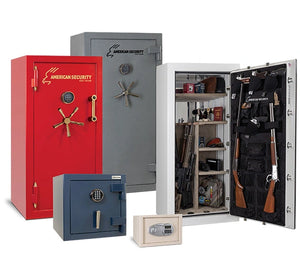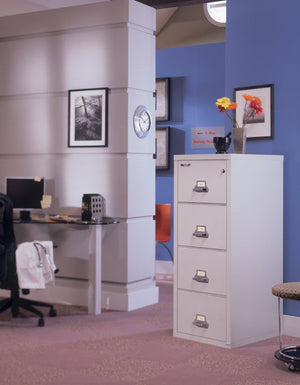
The Importance of Document Retention in the Medical Field and the Role Played By Fire-Resistant File Cabinets
Introduction to Document Retention in the Medical Field
Document retention in the medical field is non-negotiable due to the handling of critical patient records, research data, and regulatory documents. Effective management of these records is vital for legal compliance, patient care continuity, and institutional memory. Medical institutions must adhere to strict regulations, such as HIPAA, to ensure patient data privacy and security. Failure to comply can result in significant fines and legal consequences. The proper storage, archiving, and protection of patient records are essential for providing optimal care and making informed treatment decisions [ 1 ].
Challenges in Document Retention
The medical field faces numerous challenges in document retention, including risks from environmental hazards (fires, floods, natural disasters) and the importance of safeguarding against data breaches. These challenges underscore the need for secure storage solutions that can protect sensitive information from a variety of threats [ 1 ].
The Role of Fire-Resistant File Cabinets
Fire-resistant file cabinets are crucial for mitigating the risk of document loss due to fire. These cabinets are designed to withstand high temperatures, protecting documents from fire and water damage, which can occur during firefighting efforts. Moreover, they offer security against theft, ensuring that sensitive medical records and valuable documents are stored securely. In the event of a cyberattack, physical copies of essential documents in fire-resistant cabinets can serve as an indispensable backup, ensuring that critical information remains intact and accessible [ 1 ].
Regulatory Compliance
Adherence to health information privacy and security regulations, like HIPAA in the United States, is a critical aspect of document retention. HIPAA mandates that certain documents be maintained for six years from their creation or the date they were last in effect, whichever is later. This includes IT security system reviews, policies, and procedures related to the safeguarding of electronic Protected Health Information (ePHI). Secure disposal of HIPAA-related documentation is also outlined, requiring methods such as shredding or incinerating paper records and clearing or destroying electronic media to prevent data reconstruction [ 2 ].
Selecting the Right Fire-Resistant File Cabinet
When choosing fire-resistant file cabinets, medical institutions should consider factors such as size, fire rating, and lock type to match their specific needs. The selection process should ensure the chosen solution offers adequate protection against fire and other potential threats, aligning with the healthcare facility’s document retention and protection strategies [ 1 ][ 2 ].
Conclusion
As we wrap up our exploration of the vital importance of document retention in the healthcare industry, it's crucial to underscore the significant role that fire-resistant file cabinets play in this narrative. These aren't just storage solutions; they are guardians of the invaluable records that ensure regulatory compliance, legal safeguarding, and uninterrupted patient care. The integration of fire-resistant file cabinets into your document retention strategy goes beyond meeting legal obligations—it's about fortifying the very foundation of patient trust and care continuity.
In light of the stringent regulations that govern our field, including the meticulous standards set forth by HIPAA and other regulatory bodies, adopting fire-resistant file cabinets isn't just advisable; it's imperative. These regulations outline clear mandates for how long and in what manner medical records should be preserved, spotlighting the necessity for secure, fire-resistant storage solutions.
This moment serves as a call to action for all healthcare providers: assess and, if necessary, elevate your current document storage methods. Embrace fire-resistant file cabinets not just as an investment in compliance, but as a commitment to the protection and care of your patients. Let this be the step you take towards ensuring that every piece of critical information is shielded from harm, thereby guaranteeing peace of mind for both you and those you serve.
Remember, the choice of fire-resistant file cabinets is more than a compliance checkbox; it's a declaration of your dedication to maintaining a secure, resilient healthcare practice. Let's not view document retention as a mere legal requirement but as a cornerstone of patient safety and care excellence.











